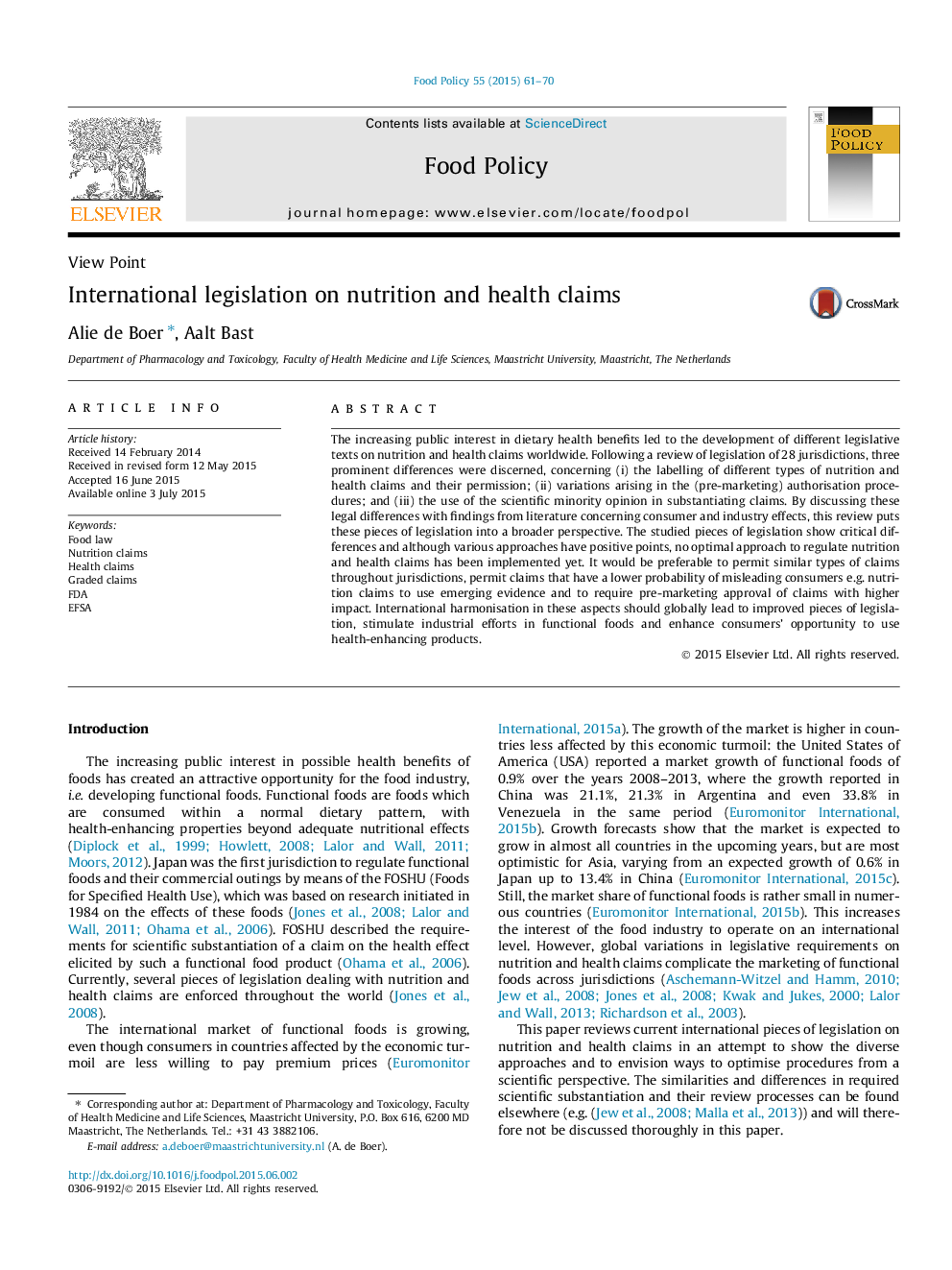| Article ID | Journal | Published Year | Pages | File Type |
|---|---|---|---|---|
| 5070329 | Food Policy | 2015 | 10 Pages |
â¢From 1991 nutrition and health claim legislation is globally being developed.â¢International legislation on nutrition and health claims varies strongly.â¢No optimal approach in regulating nutrition and health claims is implemented yet.â¢Emerging evidence could help substantiate nutrition or nutrient function claims.â¢More international harmonisation will stimulate functional food innovations.
The increasing public interest in dietary health benefits led to the development of different legislative texts on nutrition and health claims worldwide. Following a review of legislation of 28 jurisdictions, three prominent differences were discerned, concerning (i) the labelling of different types of nutrition and health claims and their permission; (ii) variations arising in the (pre-marketing) authorisation procedures; and (iii) the use of the scientific minority opinion in substantiating claims. By discussing these legal differences with findings from literature concerning consumer and industry effects, this review puts these pieces of legislation into a broader perspective. The studied pieces of legislation show critical differences and although various approaches have positive points, no optimal approach to regulate nutrition and health claims has been implemented yet. It would be preferable to permit similar types of claims throughout jurisdictions, permit claims that have a lower probability of misleading consumers e.g. nutrition claims to use emerging evidence and to require pre-marketing approval of claims with higher impact. International harmonisation in these aspects should globally lead to improved pieces of legislation, stimulate industrial efforts in functional foods and enhance consumers' opportunity to use health-enhancing products.
